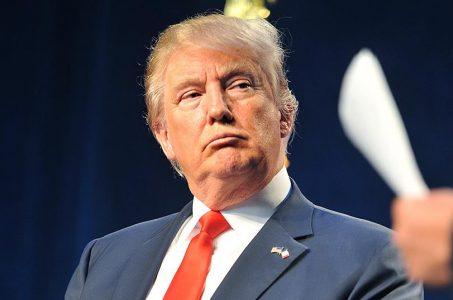It’s Michigan v. Indians as Supreme Court Hears Landmark Casino Case
Posted on: December 4, 2013, 05:30h.
Last updated on: December 4, 2013, 02:54h.

It’s been a long time since Native American tribes and the Man buried the hatchet, so to speak. But lately, what has long been considered “sovereign immunity” for Native tribes under the United States Constitution has come into question once again, as more and more states that are themselves entering the land gaming markets take umbrage with special rules regarding casino rights for tribal nations that have, until now, been exempt from certain federal restrictions, while being protected at the same time.
Sovereignty at Stake
In one such recent case, the U.S. Supreme Court is considering some precedent-setting rulings that favor states’ rights over tribal rights in what could signal the beginning of the end of the free reign on Indian gaming that’s existed for decades. Casino operators in Michigan brought the case to the court against the Bay Mills Indian Community, which has put land settlement funds towards a casino site that lies beyond its own reservation lands, which the non-Indian operators see as an unfair advantage.
Depending on whose side you’re on, the case is seen as a potential victory for fair market competition, or a possible slam against tribal legal rights.
According to the state of Michigan – which brought the suit to the Supreme Court – the Bay Mills Indians were in violation of both a state agreement and of existing federal laws when they opened a non-reservation located casino. Earlier, a lower court upheld the Bay Mills’ right to sovereign immunity from prosecution, a ruling that the state is now challenging with the higher court. Some see the appeal as a marked attack on Indian legal rights; and they see it as part of a larger movement in that direction.
Judge Stephen Breyer, along with several other justices, rejected the U.S. Department of Justice (DoJ) assertion that only Congress could decide to impinge on existing Native American tribal sovereign immunity rights. In making his arguments, Breyer noted that once off the reservation, tribes dong any kind of business venture – not just gambling-related – were subject to the higher laws of the land, just like any other United States citizens would be.
“This case has tremendous implications if we follow your approach,” said Breyer to attorney Edwin Kneedler, who represented the DoJ. “It seems to me well beyond anything to do with gaming. My belief is Indian tribes all over the country, operate businesses off the reservation, and businesses all over the country are regulated. And does the State, I guess, in your view, not have the power to enforce the regulation against the Indian tribe?”
Judges at Odds
Meanwhile, the Michigan solicitor general, John Bursch, tried to paint the move to use federal, rather than state powers to circumscribe Indian business rights as a gentler approach. Bursch claims that if the state had used its legal force to close the casino (and others like it), it would have caused more bitterness.
“We tried to take the least intrusive means necessary to stop the casino, to not go in with the billy clubs and the guns and to arrest tribal members, but to ask for a Federal civil injunction,” Bursch said in defending Michigan’s approach to the case.
“If France or Haiti came in and opened the same casino, the state would have the full panoply of remedies available to it. And it should have those remedies because any additional immunity you give to the tribe when it’s engaging in illegal conduct on lands subject to Michigan’s exclusive jurisdiction, you are necessarily taking away from the sovereign authority of the state of Michigan.”
A bit of a legal – and apparently, political – tug of war ensued in the matter, with Justice Sonia Sotomayor questioning Bursch’s – and Michigan’s – true motives in the matter.
“But you wouldn’t have gotten their property. Isn’t that what this suit is about, you trying to take over the – the casino?” Sotomayor said, referencing why the state decided to opt for a federal, rather than state, enforcement option.
Who wins this skirmish won’t be known until early next year, most likely.
Related News Articles
Most Popular
Tropicana Las Vegas to be Imploded, Tentative Date Set
VEGAS MYTHS BUSTED: Golden Gate is the Oldest Casino in Vegas
DraftKings Leads Bank Sports Betting Survey, ESPN Bet Surprises
Most Commented
-
End of the Line for Las Vegas Monorail
— April 5, 2024 — 90 Comments -
Long Island Casino Opponents Love New York Licensing Delays
— March 27, 2024 — 5 Comments















